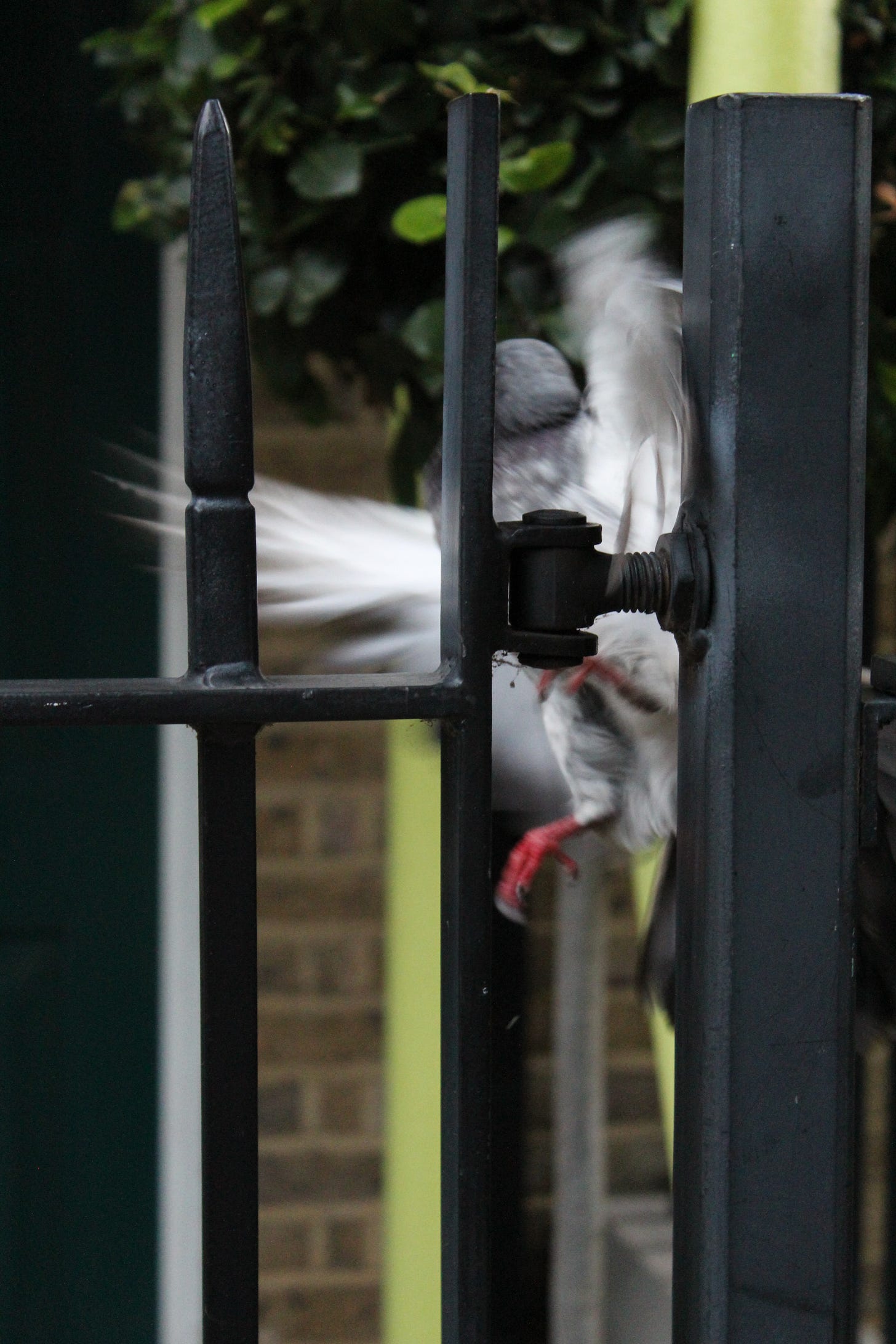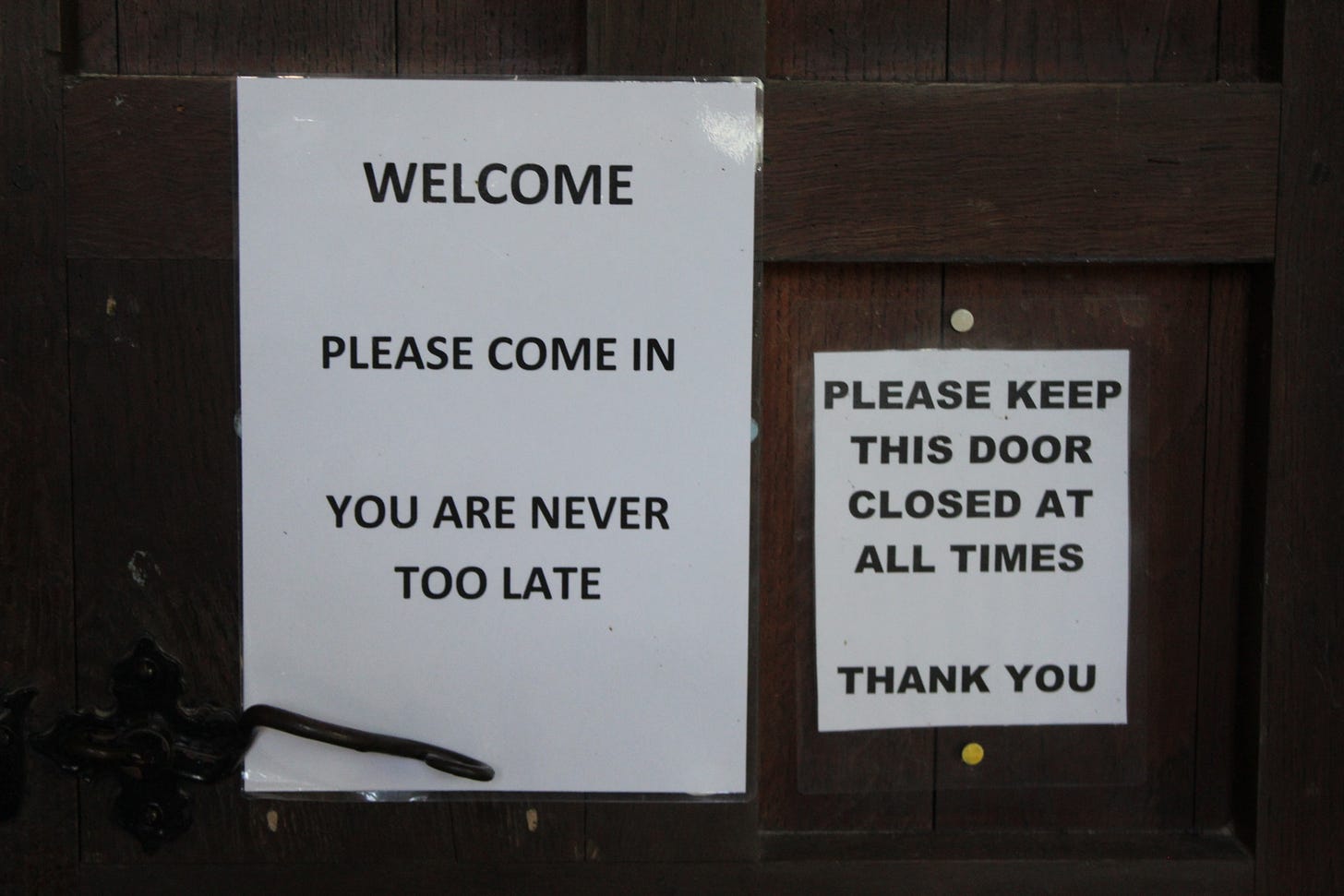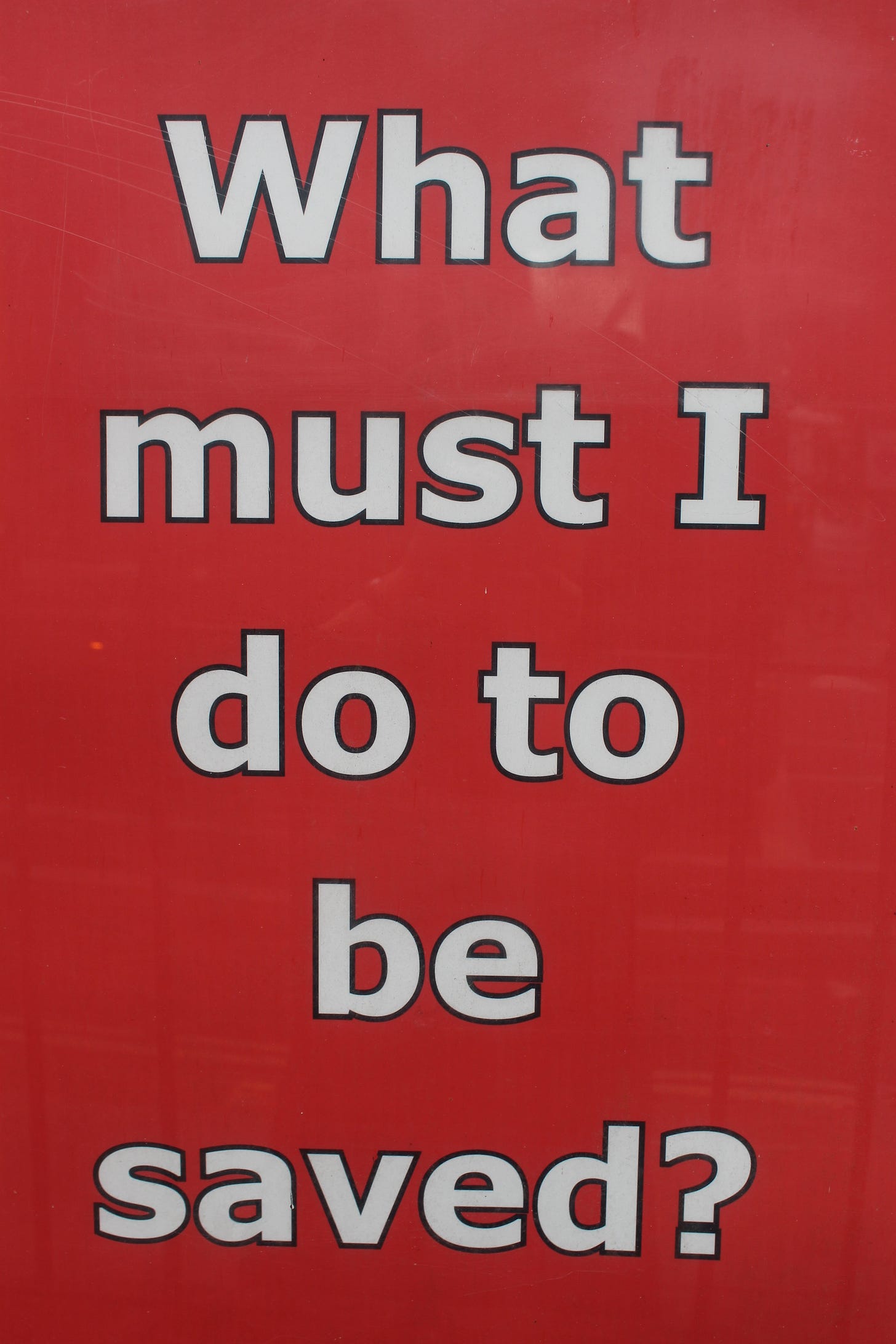hate(v.)
Old English hatian "regard with extreme ill-will, have a passionate aversion to, treat as an enemy," from Proto-Germanic *haton (source also of Old Saxon haton, Old Norse hata, German hassen, Gothic hatan "to hate"), from PIE root *kad- "sorrow, hatred" (source also of Avestan sadra- "grief, sorrow, calamity;" Greek kēdos "care, trouble, sorrow, mourning, funeral rites;" Welsh cas "pain, anger"). Via.
Someone asked me how I cope with being hated. It’s an interesting question, not least because in the first place it forces a deeper inquiry: what, in the first place, is hatred?
It is tempting to characterise hatred negatively: as lack, as the missing part of the person who apparently feels hatred. Something is wrong, something isn’t there. I can’t feel gratitude or enjoyment because someone else exists in a way that gets in the way of my desire. The etymology would attest to a deeper sadness at the heart of hatred: hatred and sorrow are perhaps closer than hatred and anger, and, besides, anger turns out to be also a kind of sadness, a choked, tight, narrow pain:
from Old Norse angra "to grieve, vex, distress; to be vexed at, take offense with," from Proto-Germanic *angaz (source also of Old English enge "narrow, painful," Middle Dutch enghe, Gothic aggwus "narrow"), from PIE *anghos, suffixed form of root *angh- "tight, painfully constricted, painful." Via.
Leaving aside hatred for non-human things and hatred for groups, social hatred of individuals is often complex, involving a combination of direct and indirect feelings.
A lot of hatred is reducible to envy: the most obvious kind in a highly iconophilic age would be envy of beauty. Physical beauty is rare among people (though everywhere in creation) and is often in practice a curse for the person who possesses it, unless they can handle it deftly. Most people are, though, beautiful in a less general sense, and are extremely beautiful to people who love them as a whole (and most meaningful relationships don’t separate out appearance and character in any case: the person you love is loveable in their specificity).
A beautiful person is likely to become the object of disapproval and scorn by people who imagine that they too want to be beautiful, or who imagine they might vampirise the beauty of the other by proximity. But wiser people appreciate beauty as fleeting, as a hint of an elsewhere, as inspiration, as delight. The wise recognise too that desire—in this case, to be beautiful, or to possess the beauty of the beautiful person—is a bind.
Plato’s caution not to confuse the beauty of the boy with beauty as such will never be fully heeded, no doubt, because we are feckless and impulsive, but understanding the upward direction of beauty is perhaps the best way of avoiding a lacking relationship to it (after all, recognising that one recognises beauty is itself a most beautiful feeling).
Not all envy is visual or physical: we can envy someone’s mind, their wealth, their innocence, their work ethic, or anything we don’t have, but imagine we want. Recognising what we don’t have but want is the first step in either transmuting envy into rivalry and spur or to overcoming lack by realising we don’t want what it was we thought we did.
If hatred based on envy is about wanting something outside of us to be closer, there is the hatred based on disapproval, offence and disgust. In this case we want the person to be as far away from us as possible. We can’t believe that they’ve acted or spoken in such a way—we would have never done such a thing. There is something wrong with this person: this person, and if they have transgressed at the extremes, should be locked up for our safety, their safety and as a lesson to everyone else.
Most everyday hatred of this kind is not, though, of extreme behaviour, which we imagine will be dealt with by the punitive and protective elements of the state. It is easy to hate someone who has done something we would never do, or be tempted to do. The hatred that seeks to condemn or push away turns out, often, to be another version of the proximity found in the first kind of hatred, envy-hatred. Not because we think we are missing out on something when we do not commit murder for example (although undoubtedly the fascination of some stems from wondering what this feels like), but because we realise that we are not so very different from the person we wish to condemn cleanly.
Perhaps a third kind of hatred stems less from envy or rejection than from vindictiveness: the desire for revenge against someone we believe has hurt us. Human beings of course hurt each other and are hurt all the time, sometimes gravely. If we blame something for hurt, we either imagine that someone did it intentionally, or by accident (in which case we might blame them for being thoughtless or stupid). In the Old Testament it is interesting to note the detailed descriptions of “cities of refuge” where those who had killed someone could flee to instead of being immediately avenged under lex talionis while people worked out whether the death had been intentional or accidental.
Vengeance is a powerful and often misleadingly pure feeling: we have been wronged, we are the victim. Much of the past decade (and many other times besides) has been motivated by the desire to be a victim or to avenge victims (imaginary or otherwise) on whose behalf one is acting, righteously of course. The “cry-bully” is common: the person who works out their sadistic impulses under the cover of having been hurt, or, even better, on those who belong to whichever sacred caste is being worshipped that week.
As an advanced theory of human anthropology, among many other things, Christianity is the religion that best understands the true meaning of the various kinds of phenomena contained within the overly-broad “hate”.
1. In place of envy, one ought not to covet anything that doesn’t belong to you. The cure for covetousness is gratitude for what one has, beginning with life itself.
2. In place of judgment, we have the following instruction: “Judge not, and ye shall not be judged: condemn not, and ye shall not be condemned: forgive, and ye shall be forgiven” (Luke 6:37)
3. As for vindictive desire, we should understand that it is not our place to perform such vigilante behaviour, but that vengeance belongs only to God (Vengeance is mine; I will repay, saith the Lord (Romans 12:19)).
“It is those who talk most of hatred who feel it most intensely. They reproach you for yours with a face and language ravaged by theirs.” - Renaud Camus, Enemy of the Disaster
None of this is easy, particularly not in an anti-Christian culture that declares that all desire is good and ought to be pursued; that gossip and lying is fun and harmless and that we ought to hurt those who we believe have harmed us, or we have been told are “bad” people. Scapegoating is an ever-present quick fix and a mob is easily created and manipulated. In any regime, there are those people who one is allowed to hate: sometimes these are people accused of themselves having hatred (thus, it is good to hate “racists” and so on).
All the descriptions of hatred I’ve mentioned above presuppose that hatred is a bad thing and to be avoided in favour of the opposite emotion or de-escalation. But clearly hatred is warranted in some situations. In Proverbs 6, for example, there is a list of things that ought to be hated:
These six things doth the Lord hate: yea, seven are an abomination unto him: A proud look, a lying tongue, and hands that shed innocent blood, An heart that deviseth wicked imaginations, feet that be swift in running to mischief, A false witness that speaketh lies, and he that soweth discord among brethren.
If we are not to hate the sinner, we might nevertheless hate the sin. This hatred is predicated on the idea that there are better and worse ways to live and behave, and that we are all capable of sinning, but also of avoiding or resisting sin. A liberal anti-Christian culture imagines that by eliminating the category of sin, we might thereby prevent the need to stop doing it. This idea only works if we imagine that we are an entirely blank kind of creature who can be shaped at any moment by whims and fancies. But we are not. We have a nature.
It is natural to hate those who seek to destroy us and those we love. It is natural to hate that which God hates. To seek to identify treason and betrayal. How we mercifully adjudicate (human) justice is one of the hardest questions to answer, both in the abstract and in the particular. But forgiveness is possible; atonement is possible; making amends is possible. Restoring balance is possible (if rare). It is a terrible waste of one’s life to be consumed with hatred, or to wish to be a victim, even if one has been victimised. Christ’s sacrifice was the last one: his victimhood incomparable—this releases you from the burden of being both apex victim and apex executioner. We are all both, all the time, and there is light even in the darkest of rooms.
Let us return to the opening problem: how does one cope with being hated by others? In several ways, in my experience.
1. By understanding that hatred is often a cover for some lack in the person who seemingly hates you.
2. By not hating, but instead being grateful, even (or especially) for the hatred itself. I have felt everything from bemusement to gratitude to those who have condemned me, sought to lose me work and reputation and who are (in some small cases) obsessed with the desire to destroy me. I love them.
3. By knowing who you are and who you love/who loves you in real life. By knowing full well that the internet is not reality, and has very little life compared to your friends, family and community. It is important not to take the hatred of the other seriously, particularly when it comes from strangers. You know what is true and beautiful and good.
It’s clear that some people develop a perverse attachment to hatred (after all, it is a form of attention, albeit a negative one) and pursue a bloody-minded career in attracting more of it. This is a position along the lines of Milton’s “Better to reign in hell than serve in heaven”. But encouraging and embracing hatred will eventually just make you as unhappy as the people who don’t like you. You might not be evil in the way your detractors claim you are, but you are human, and you have made mistakes, and will get things wrong.
When a person is eroded and battered it is difficult to image a world in which one is capable of maintaining a cheery and light-hearted attitude, but it becomes possible! There is a curious and wonderful feeling attendant on being hated that is hard to describe, but it is something like no longer having to worry that one day you might be hated.






